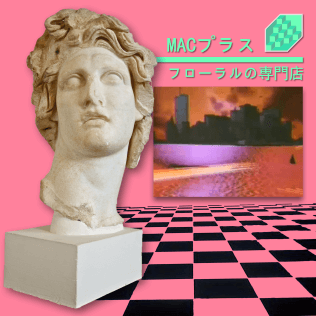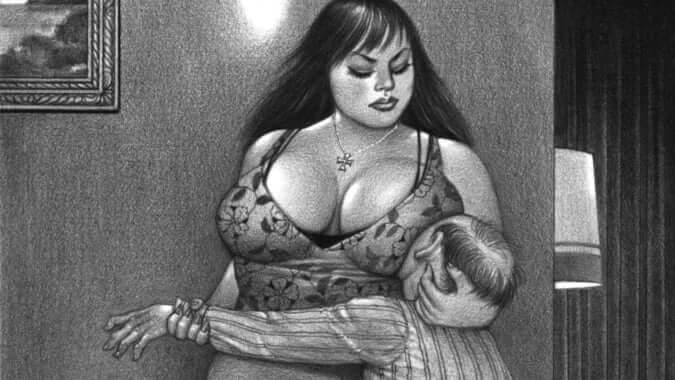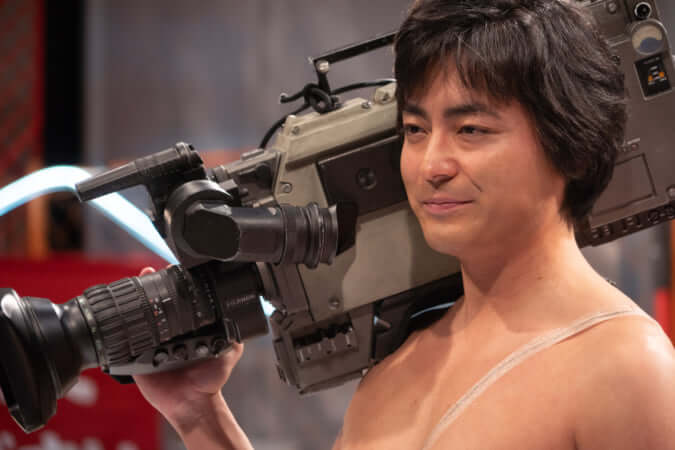Vaporwave, an Obsession with the 1980s
This musical genre that emerged online in the 2010s reclaims a consumerist past that it critiques under the guise of idealising it.

© Vektroid - “Floral Shoppe”
To discover the roots of vaporwave, simply take a look at Reddit, Tumblr, and 4Chan, the big-name forums of the early 21st century. This is where this somewhat confidential music genre—one that some believe to already be dead, just ten years after its birth—truly bloomed. This form of music 2.0 is a clever mix of 90s pop, New Age music, funk, and electronic. All this is chopped up, remixed, and repeated to result in drone tracks to which commercial jingles are often added. At the helm are artists with a fascination for the 1980s and 1990s, the eras during which they were born, and with which they have developed an obsession.
‘Vaporwave represents capital in its most informal appearance. It’s the ghost of commercial music, a kind of tomb for empty shopping centres. If everything that is solid disappears into the air, vaporwave is a critique of music created in the vacuum of capitalist society’, explains Grafton Tanner in his book Babbling Corpse: Vaporwave and the Commodification of Ghosts.
A time when anything was possible in Japan
Three main names come to mind when talking about vaporwave: Daniel Lopatin, who released the album Eccojams Vol. 1 in 2010 under the pseudonym of Chuck Person; James Ferrero, who is known for Far Side Virtual; and lastly Vektroid, known by the stage name ‘Macintosh Plus’ and whose album Floral Shoppe is one of the most popular in the genre, particularly the track ‘リサフランク420 / 現代のコンピュー’, which received over 38 million views on YouTube before being removed in 2018 (the track was reuploaded in 2019 and now has dozens of millions of views once again).
The aesthetic of vaporwave is also based on imagery from the 1980s and early 1990s, with Japanese society, which was at the time at the height of the economic miracle, as its emblem. The clips depict Tokyo and its urban landscapes lit up by colourful neon lights, its pop figures, and its futuristic side. Other times, train announcement jingles are inserted onto the tracks. Japanese iconography is also very present. Thus, vaporwave freezes Japan in its decade of unrestrained consumption, a time when anything seemed possible, before the speculative bubble burst. Even if vaporwave is already dead as some seem to think, a question remains to be resolved: is this musical micro-genre the marker of a real obsession with consumer society or a means of denouncing unbridled consumerism?
Floral Shoppe (2011), an album by Macintosh Plus, also known as Vektroid, is available on her Bandcamp page.
TRENDING
-
Ishiuchi Miyako, A Singular Perspective on Women
Recipient of the 2024 Women in Motion Award, the photographer creates intimate portraits of women through the objects they left behind.

-
Recipe for Ichiraku Ramen from ‘Naruto’ by Danielle Baghernejad
Taken from the popular manga with the character of the same name who loves ramen, this dish is named after the hero's favourite restaurant.

-
Namio Harukawa, Master of Japanese SM Art
'Garden of Domina' offers a dive into the world of an icon of ‘oshiri’, whose work has now reached a global audience.

-
The Tattoos that Marked the Criminals of the Edo Period
Traditional tattoos were strong signifiers; murderers had head tattoos, while theft might result in an arm tattoo.

-
The Emperor of Japanese Porn is Now the Star of a Netflix Series
Deliciously funny, The Naked Director especially succeeds in reviving the atmosphere that was so characteristic of 1980s Japan.





